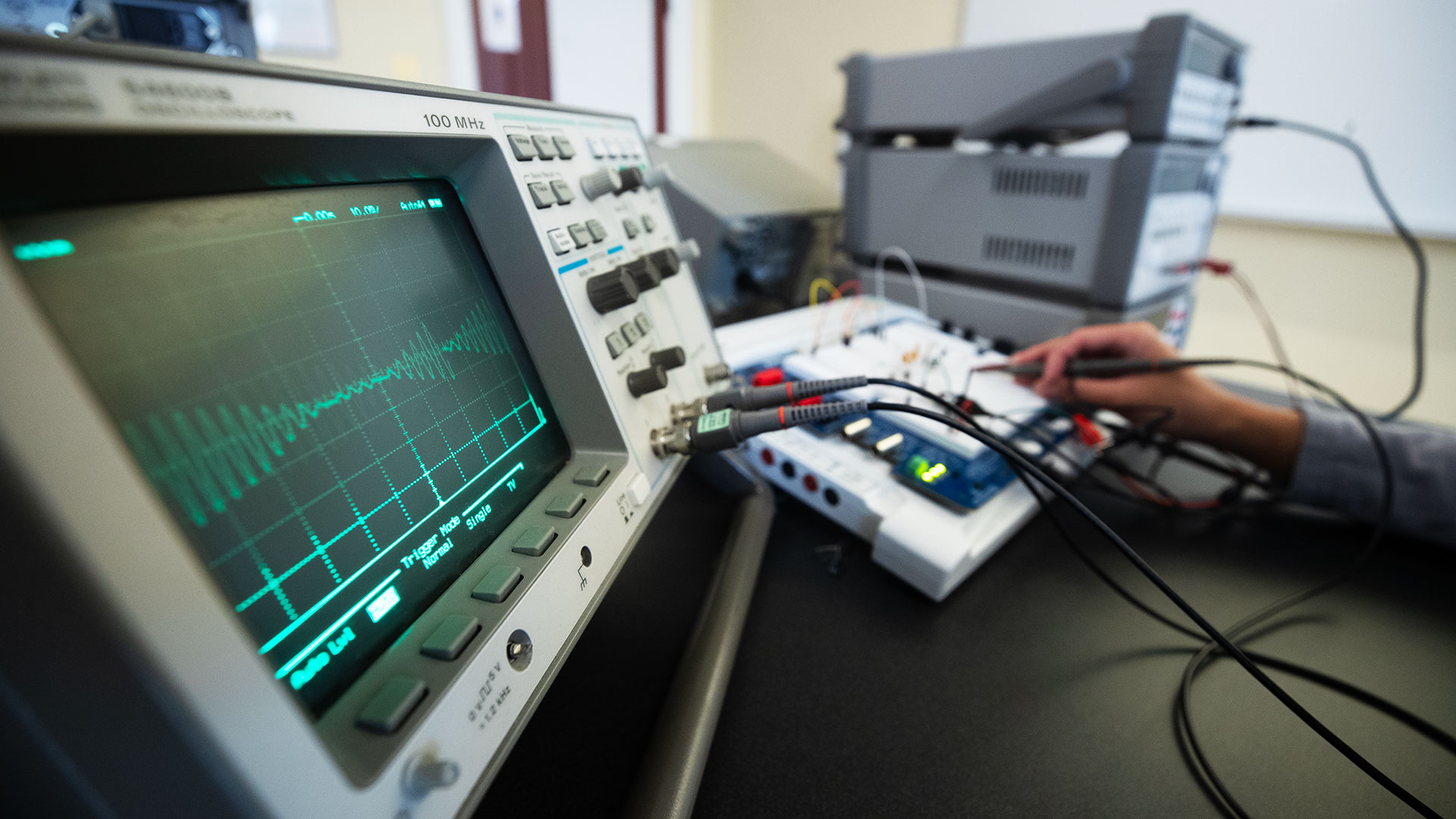Electrical Engineering
major

Program at a Glance
Degree(s)
Bachelor of Science
College(s)/School(s)
College of Natural and Behavioral SciencesDepartment(s)
School of Engineering and ComputingIn our Electrical Engineering program, you'll design and create essential electrical devices and systems. With a foundation in mathematics, science, and computer applications, explore digital systems, communication and signal processing, and control and instrumentation. Unleash your creativity, and shape the future in fields like telecommunications, power systems, and robotics.
Program Requirements
Students majoring in Electrical Engineering who complete all requirements earn the degree of BS, Electrical Engineering.
- Select one:
- ECON 201 - Principles of Macroeconomics
- ECON 202 - Principles of Microeconomics
- CHEM 121/121L - General Chemistry I and Laboratory
- CHEM 122 - General Chemistry II
- PHYS 201/201L - General Physics and Laboratory
- PHYS 202/202L - General Physics and Laboratory
- PHYS 341 - Design and Analysis of Experiments
- Select one:
- MATH 140 - Calculus and Analytic Geometry
- MATH 148 - Accelerated Calculus
- MATH 240 - Intermediate Calculus
- MATH 320 - Ordinary Differential Equations
- Select one:
- MATH 250 - Multivariable Calculus
- MATH 335 - Applied Probability
- ENGR 213 - Discrete Structures for Computer Applications
- CPSC 150/150L - Introduction to Programming and Laboratory
- CPSC 250/250L - Programming for Data Manipulation and Laboratory
- CPSC 327 - C++ Programming
- CPEN 214 - Digital Logic Design
- CPEN 371W - Computer Ethics
- ENGR 121 - Engineering Design
- ENGR 211/211L - Introduction to Electric Circuits and Electronics and Laboratory
- ENGR 212/212L - Electronics and Laboratory
- ENGR 340 - Mathematical Methods for Engineers and Scientists
- EENG 221 - Signals and Systems
- EENG 311/311L - Electric Circuits II and Laboratory
- EENG 321/321L - Control Systems and Laboratory
- EENG 361/361L - Communication Systems I and Laboratory
- EENG 498W - Electrical Engineering Capstone Project
At least one of the following three areas of emphasis must be completed.
- Digital Systems:
- CPEN 315/315L - Digital System Design and Laboratory
- CPEN 414 - Computer Architecture
- Control:
- EENG 421 - Industrial Control and Data Acquisition
- CPEN 422 - Microprocessors
- Communication:
- EENG 461 - Communication Systems II
- EENG 481 - Digital Signal Processing
Career Options
- Electrical Engineer
- Control Systems Engineer
- Electronics Engineer
- Power Systems Engineer
- Radio Frequency (RF) Engineer